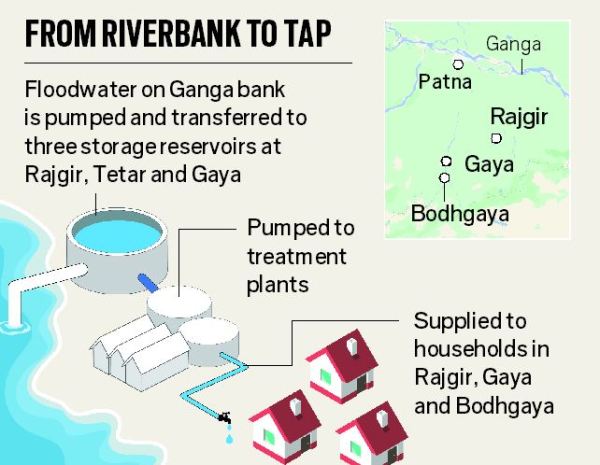Waterlogging relief delay
2 min readPatna: Waterlogging, that perennial problem for Patna during the monsoons, is likely to plague the city this year too.
Five new sump houses – that can pump stagnant water out of a locality – are to be installed in the city, but the city can reap their benefits earliest in 2019, as it will take time to install the machines at the chosen places.
“We have seen earlier that during heavy rainfall, sumps cannot flush out the accumulated water fast,” Bihar Rajya Jal Parishad (BRJP) managing director Rajesh Meena said on Thursday. “We have got approval to install new sump houses at some posh localities of the town. We are in the process of finalising tenders for them, after which work will start.”
He promised that the sump houses will be ready by monsoon 2019. The work, however, has been crawling. The five new sump houses were approved last year, and yet they could not be made ready for this year. Orders for the machines will be placed after the tender process – which is in the final stage – is completed.
The sump houses on SP Verma Road and at Pahadi do not function to their fullest capacity. At both these places, new sump houses will be installed. Additional sump houses will be installed at Punaichak, Sandalpur, and RMRI.
The power of five pumps to be installed are – Punaichak (350 horse power), Sandalpur (150hp), Purani Pahadi (475hp), RMRI (100hp) and SP Verma Road (180hp).
At present, five sump houses are functional Punaichak (1165hp), RMRI (158hp), SP Verma Road (431hp), Purani Pahadi (898hp) and Sandalpur (300hp).
The Jal Parishad plans to monitor the sump houses through closed-circuit television cameras.
“Our prime focus is to keep vigil on the operation of sump houses to solve the water-logging problem,” said Meena. “Many a time, operators either sleep or don’t run the sump houses out of carelessness. That leads to waterlogging after heavy rain. Sometimes when there is no electricity, the operators don’t run the pumps just to save diesel. But now they can’t escape their duty.”
Courtesy: The Telegraph


